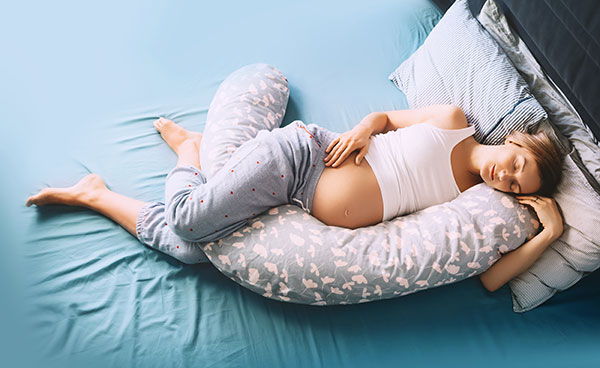The Role of Hormones in Female Sleep

Sleep is an intricate dance, influenced by a myriad of factors, and for women, hormones play a pivotal role in this delicate balance. As we navigate the different stages of our lives, from adolescence to post-menopause, hormonal fluctuations can profoundly impact our sleep patterns and quality. Here’s an exploration of how hormones intertwine with female sleep:
Menstrual Cycle
During the menstrual cycle, levels of both estrogen and progesterone rise and fall. Estrogen, which surges in the first half of the cycle, can promote better sleep by enhancing the duration of rapid eye movement (REM) sleep. However, as progesterone levels rise in the second half, some women may experience disruptions in their sleep, mainly due to the hormone’s thermogenic effect, which can raise body temperature.
Pregnancy
Pregnancy is a time of significant hormonal upheaval. Elevated levels of progesterone can make expectant mothers feel excessively sleepy, especially during the first trimester. As the pregnancy progresses, physical discomfort, combined with hormones, can lead to frequent nighttime awakenings, restless leg syndrome, and sleep apnea in some cases.
Perimenopause and Menopause
As women approach menopause, the decline in estrogen and progesterone levels can lead to several sleep disturbances. Hot flashes, a direct result of fluctuating estrogen, can cause night sweats and subsequent awakenings. The decrease in progesterone, a hormone that has sedative properties, can also contribute to insomnia.
Thyroid Hormones
Thyroid hormones, which regulate metabolism, can also influence sleep. An overactive thyroid (hyperthyroidism) can lead to difficulties in falling asleep, while an underactive thyroid (hypothyroidism) can make women feel constantly fatigued.
Stress and Cortisol
While not exclusive to women, the stress hormone cortisol plays a role in sleep dynamics. Elevated nighttime cortisol levels can prevent restful sleep. For many women juggling multiple roles, chronic stress can disrupt the delicate balance of the sleep-wake cycle.
Holistic Approaches to Hormonal Sleep Challenges
Understanding the relationship between hormones and sleep allows us to approach sleep disturbances holistically. Lifestyle modifications, such as stress management techniques, sleep hygiene practices, and dietary changes, can help regulate hormonal imbalances. For some, hormone replacement therapy or other medical interventions might be beneficial.
Hormones are inextricably linked with female sleep patterns. Their ebb and flow throughout different life stages present unique challenges and opportunities for intervention. If you find yourself struggling with sleep and suspect hormones might be a factor, seeking expert guidance can pave the way for restful nights.
At North Pointe OB/GYN, we recognize the importance of sleep in female health. If you believe that your sleep quality has been compromised due to hormones, please reach out to our Cumming clinic today.


